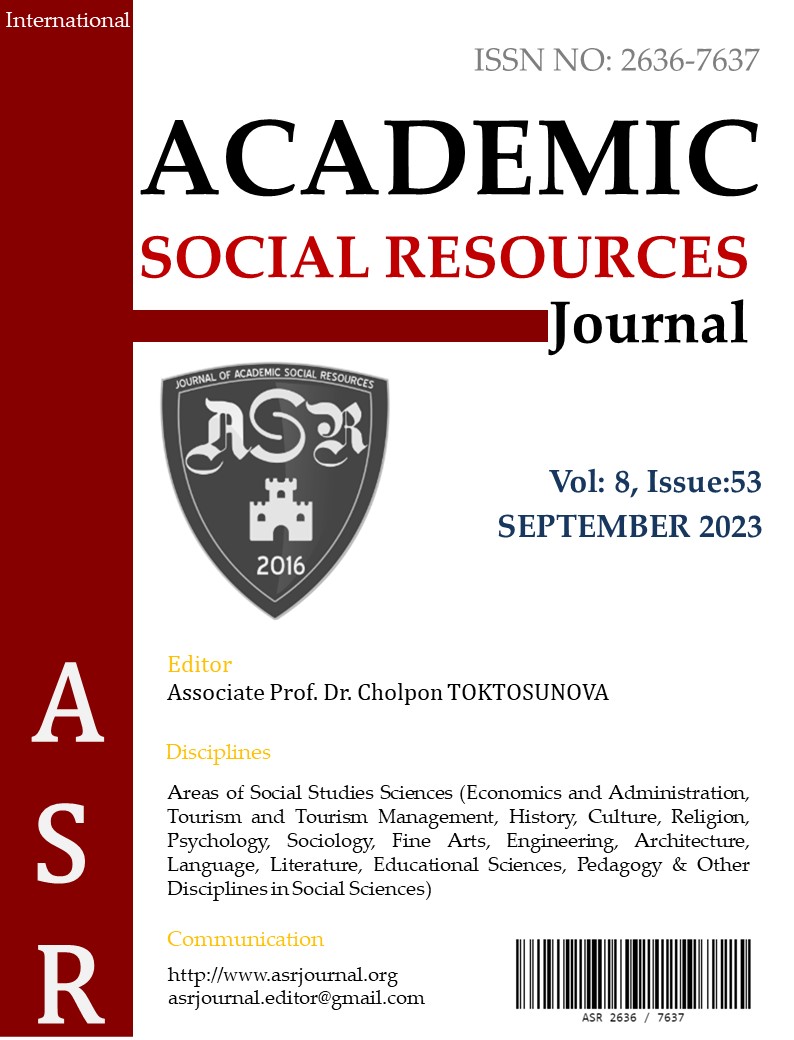Author :
Abstract
Bu çalışmanın amacı okullarda teknolojik liderlerin nasıl olması gerektiğine yönelik okul müdürlerinin görüşlerinin değerlendirilmesidir. Bu çalışmanın yöntemi belirlenirken nitel araştırma tekniklerinden fenomenoloji deseni tercih edilmiştir. Araştırma grubu, amaçlı örnekleme yöntemlerinden biri olan maksimum çeşitlilik örnekleme stratejisi kullanılarak seçilmiştir. Bu yöntemle araştırmaya dahil edilen 10okul müdürüaraştırmanın çalışma grubunu meydana getirmektedir. Verilerin toplanmasında yarı yapılandırılmış görüşme formu kullanılmıştır.Veriler içerik analizi kullanılarak analiz edilmiştir.Öğretmen görüşleri, teknolojik liderlerin eğitimdeki merkezi rolünü ve özelliklerini vurgularken, aynı zamanda öğretmenlerin dijital becerilerini güçlendirmeleri, yeni teknolojilere yönlendirmeleri ve pedagojik rehberlik yapmaları gerektiğini vurguluyor. Okullar, öğretmenlere düzenli teknoloji eğitimleri sunarak dijital yetkinliklerini artırıyor ve interaktif öğrenme deneyimleri sağlamak için teknolojiyi aktif bir şekilde kullanıyor. STEM eğitimi ve dijital projeler gibi yaklaşımlar, öğrencilerin teknolojiyi keşfetme ve yaratıcılıklarını geliştirme yeteneklerini destekliyor. Eğitimciler arası işbirliği ve en iyi uygulamaların paylaşımı, teknoloji kullanımını artırmayı desteklerken, öğretmenlerin geniş bir yelpazede becerilere sahip olmalarının önemi vurgulanıyor. Sonuç olarak, bu görüşler teknolojik liderlerin çok yönlü rollerini vurgulayarak, öğretmenlerin dijital dönüşümü desteklemek ve öğrenci başarısını artırmak için önemini vurguluyor. Okullar, teknolojik liderlik becerilerini desteklemek için stratejiler benimseyerek eğitimde teknoloji kullanımını artırma çabalarını sürdürüyor.
Keywords
Abstract
The aim of this study is to evaluate the views of school principals on how technological leaders should be in schools. While determining the method of this study, phenomenology design, one of the qualitative research techniques, was preferred. The research group was selected using the maximum diversity sampling strategy, which is one of the purposeful sampling methods. With this method, 10 school principals included in the research constitute the study group of the research. A semi-structured interview form was used to collect the data. The data were analyzed using content analysis. Teachers' views emphasize the central role and characteristics of technological leaders in education, as well as the need to strengthen teachers' digital skills, orient them to new technologies and provide pedagogical guidance. Schools are increasing their digital competencies by offering regular technology trainings for teachers and are actively using technology to provide interactive learning experiences. Approaches such as STEM education and digital projects support students' ability to explore technology and develop their creativity. Collaboration between educators and the sharing of best practices support increasing the use of technology, while emphasizing the importance of teachers having a wide range of skills. In conclusion, these insights highlight the multifaceted role of technological leaders, emphasizing the importance of teachers to support digital transformation and improve student achievement. Schools continue their efforts to increase the use of technology in education by adopting strategies to support technological leadership skills.





